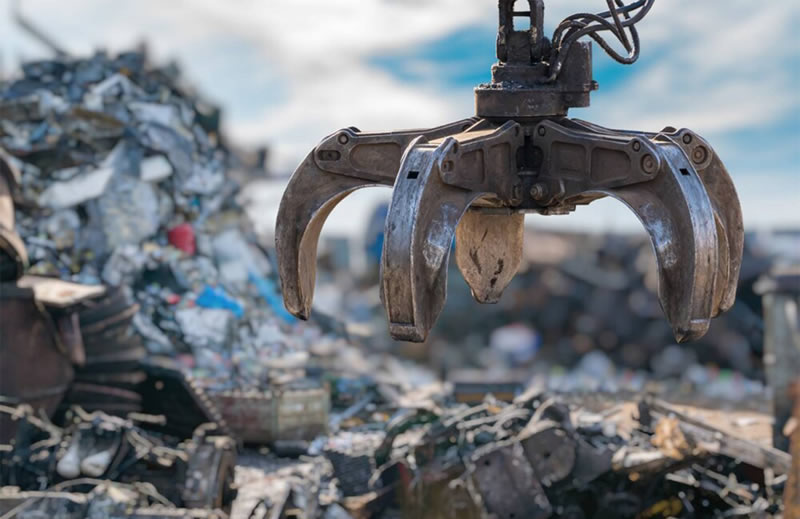

MAY 03, 2023
Metal recycling is an indispensable way to conserve natural resources and minimize environmental impacts. Recycling scrap metals with RCM Recycling can lessen our environmental footprint as new metal production requires considerable energy consumption. These basics will outline all aspects of scrap metal recycling, from ferrous to nonferrous, and their various varieties - and any applicable legislation or policies - in an easy-to-follow format.
Ferrous metals contain iron as the main constituent, making them magnetic and offering exceptional tensile strength, making them highly prized by construction, transportation, and machinery industries alike. Common examples include iron and steel alloys; cast iron; wrought iron; stainless steel, as examples of ferrous materials.
Iron and steel are some of the world's most widely-used metals. Both materials have multiple applications ranging from construction, transportation, and manufacturing; recycling processes keep these resources functioning at optimal performance while remaining strong enough for future reuse.
Cast iron is an iron alloy composed of carbon and silicon that can withstand wear and corrosion while remaining brittle under stress but resistant to wear. Common uses for cast iron include pipes, engine blocks, and cookware.
Wrought iron is a low-carbon iron alloy with malleability and ductility commonly used in ornamental and decorative applications like gates, fences, and furniture. Though less common than other varieties of iron, Wrought iron can still be recycled after its usage is done away with.
Steel is an alloy composed of iron and carbon that provides greater strength than iron for use in construction, transportation, and manufacturing applications. Recyclable multiple times over its lifecycle without loss in strength or quality - steel can even be recycled repeatedly without detriment to strength and quality.
Stainless steel is an alloy containing chromium and nickel that offers increased corrosion protection and stain-resistance properties, making it suitable for kitchen appliances, medical equipment, and industrial uses. Plus, it's recyclable!
Recycling scrap metals is integral to conserving natural resources and mitigating environmental impacts. Through recycling, used metal can be transformed into new products while saving energy consumption and decreasing greenhouse gas emissions from producing new metal.
Non-ferrous metals, otherwise known as non-ferrous, do not contain iron as their primary constituent, meaning that these metals do not attract magnets and possess lower tensile strengths than ferrous counterparts such as ferrous alloys as iron. Common examples include aluminum and copper.
Aluminum is an efficient metal popularly used in beverage cans, automotive parts, and construction materials. Recycling aluminum is easy as well - simply melt it down and reuse it over and over without suffering quality or strength loss!
Copper is an extremely useful metal in electrical wiring, plumbing, and construction applications. Due to its excellent heat and electricity conductivity properties, copper makes an excellent industrial material. Furthermore, recyclable material can be recycled repeatedly without losing quality or strength over time.
Recycling scrap metal can be done easily by individuals and businesses alike, beginning with sorting by type and grade to ensure it satisfies the requirements of recycling facilities.
Once the metal has been collected and sorted, it is processed and melted into new products. Although melting down metal requires significant energy consumption, the overall process requires far less power than extracting and processing new metal.
RCM Recycling is a trusted scrap metal buyer, and our experienced team is dedicated to recycling scrap metal responsibly for an eco-friendly, cost-effective process. By working together, our scrap metal company can ensure all ferrous and nonferrous metals are handled and recycled according to strict industry standards while offering convenient pickup/drop-off services, making our clients' recycling experience as straightforward and hassle-free as possible. When you partner with RCM Recycling, you can trust your scrap will be recycled responsibly, helping create a better tomorrow for everyone involved.